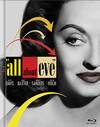





Article:
Mr. Smith Goes to Washington (1939)
Cast | Crew | Awards | Article | Downloads | Image Credits
Jimmy Stewart's 'Mr. Smith' Unwelcome in 1939 Washingtonby Crosby DayThe Sunday Oklahoman "TV This Week," August 31, 1997One of the best-remembered political films of the 1930s is Frank Capra's Mr. Smith Goes to Washington (1939). James Stewart has one of his best roles as Jefferson Smith, an honest but naive small-town man, who is chosen by the political machine as a rubber stamp to fill out a senator's term. However, when Smith becomes aware of the bosses' corruption and threatens to expose it, they try to silence him. The film airs Monday at 7:45 p.m. on American Movie Classics. Smith is aided in his search for justice by Saunders (Jean Arthur), the cynical Washington secretary assigned to him. With Saunders' support, Smith learns how to pitch the honest voice of one man loudly enough for it to be heard by the nation at large. The film had a gala preview at Constitution Hall in Washington D.C., on October 17, 1939. Among the more than 4,000 guests attending were 45 senators, including Majority Leader Alben W. Barkley, D-Kentucky; and 250 congressmen, including Majority Leader Sam Rayburn, D-Texas. Far from recognizing Mr. Smith Goes to Washington as a triumph of democracy in action and a warning against incipient home-grown fascism, senators and congressmen who should have known better outdid each other in hysterical denunciation of the film. Barkley said the film was "as grotesque as anything I have ever seen." Rayburn said: "It won't do the movies any good." And Senator James F. Byrnes, D-South Carolina, said: "The (film) was outrageous, exactly the kind of picture that dictators and totalitarian governments would like to have their subjects believe exists in a democracy." Punitive legislation against the movie was even threatened. Joseph P. Kennedy, American ambassador to England, urged Columbia not to release the picture in Europe. Columbia chief Harry Cohn replied with a sheaf of laudatory American and Canadian reviews, including one by William Boehnel of the New York World-Telegram, who wrote that Mr. Smith was "a stirring, patriotic document." Eventually, freedom prevailed, and in 1942, when the Nazis banned American films in France, Mr. Smith was deliberately the last one shown, and loudly cheered by the audience. The film was warmly embraced in England, where James Hilton wrote in London's Sunday Graphic that it was "just about the best American patriotic film ever made." © 1997 The Daily Oklahoman Return to the MR. SMITH GOES TO WASHINGTON main page. |
| Now in Print! |
|---|
| Now on DVD! |
|---|
Buy Videos & DVDs |
|
Buy Movie Posters |
|
Buy Movie Posters |
|
Classic
Movie Merchandise |
|
![]() Printer-friendly version.
Printer-friendly version.
![]() Return
to the top.
Return
to the top.
Last updated:
March 10, 2011.
Reel Classics is a registered trademark of Reel Classics, L.L.C.
© 1997-2011 Reel Classics, L.L.C. All rights reserved. No
copyright is claimed on non-original or licensed material.
Terms of
Use.









